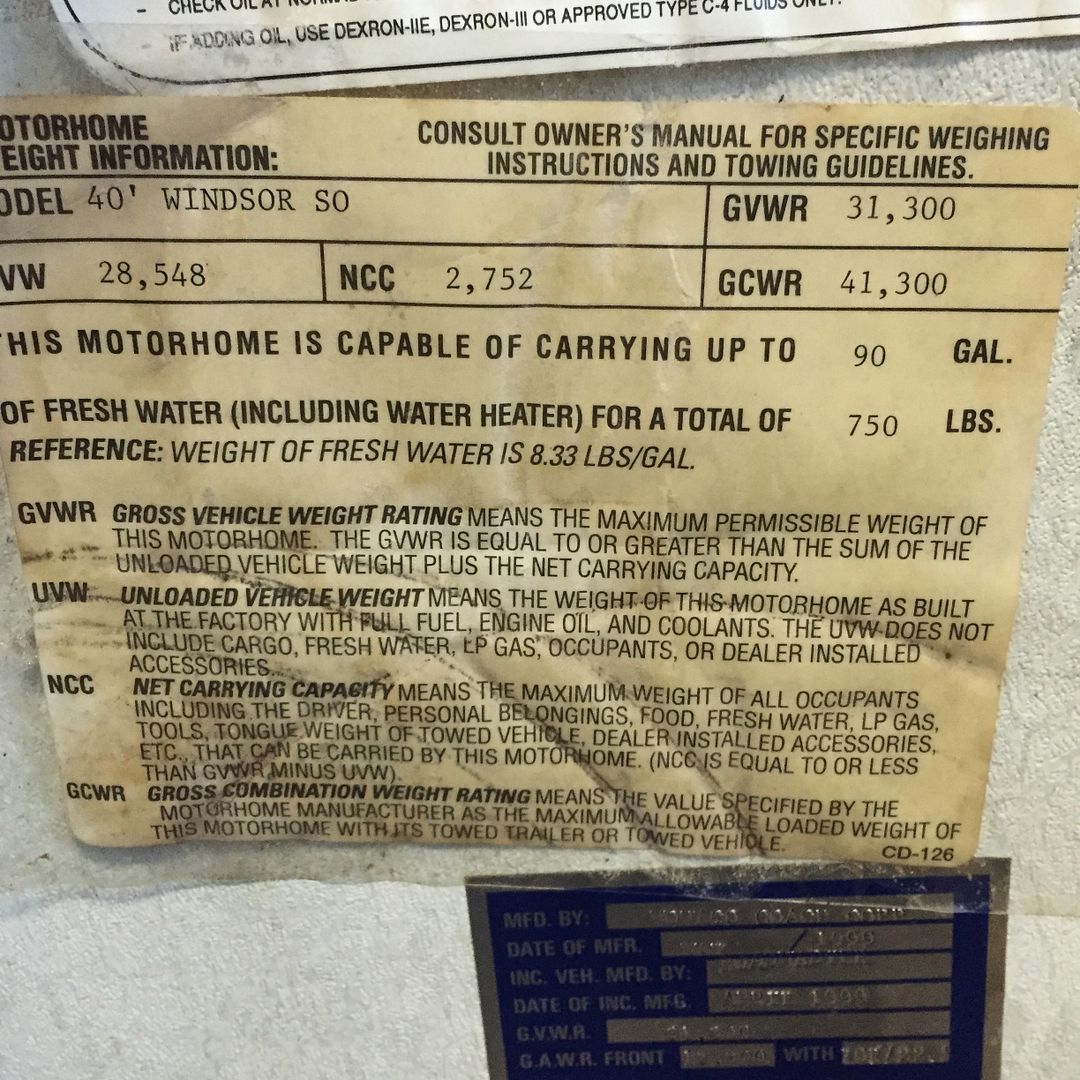wolfe10 wrote:
Add to that that some manufacturers also have a "towing capacity".
yeah, I've seen that but I don't know how they reach their recommendation. and I guess I'm old school. most of the newer weight ratings...CCC, sleeping weights, UVW and the like seem designed to confuse. I think the weight ratings from 30-yrs ago...dry weight, wet weight and payload in addition to the standard GVWR, GCWR, GAWR, etc. were more relevant, for me at least.
the GVWR minus the wet weight (base weight of the MH with full fuel, fresh water and LP tanks) for each axle gave the payload for each axle...the total weight of food, clothing, supplies, people, pets and "stuff" that can be added to the MH. but this had to be determined for each axle. as we learned the total weight of the MH can be less than the GVWR with one axle overweight. yes, this involved some calculations (X gallons of fuel, water and LP at Y-pounds per gallon) but I was happy when my calculations as to what the total vehicle wet weight should be on our new MH was very, very close to the actual wet weight.
but no matter how one gets there it is vital to know what your RV weighs as it rolls down the road. I've seen posts from some who don't care to know or who make all sorts of assumptions about the weight of their RV. personally, I think that's dangerous. no, your RV is not going to collapse if it's a bit overweight but there will be consequences including handling, braking, premature wear of parts, etc.
nope, not trying to be the weight police...everyone makes their own decisions...but there are a lot of newbies out there who are uneducated about the importance of weights and what the various ratings mean and they're sure not getting the information they need from the RV dealers. had it not been for a good friend who had substantial RV experience we would've bought that RV that weighed in less than the GVWR but with the rear axle overweight as it sat on the lot.

